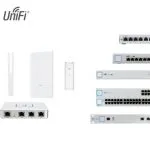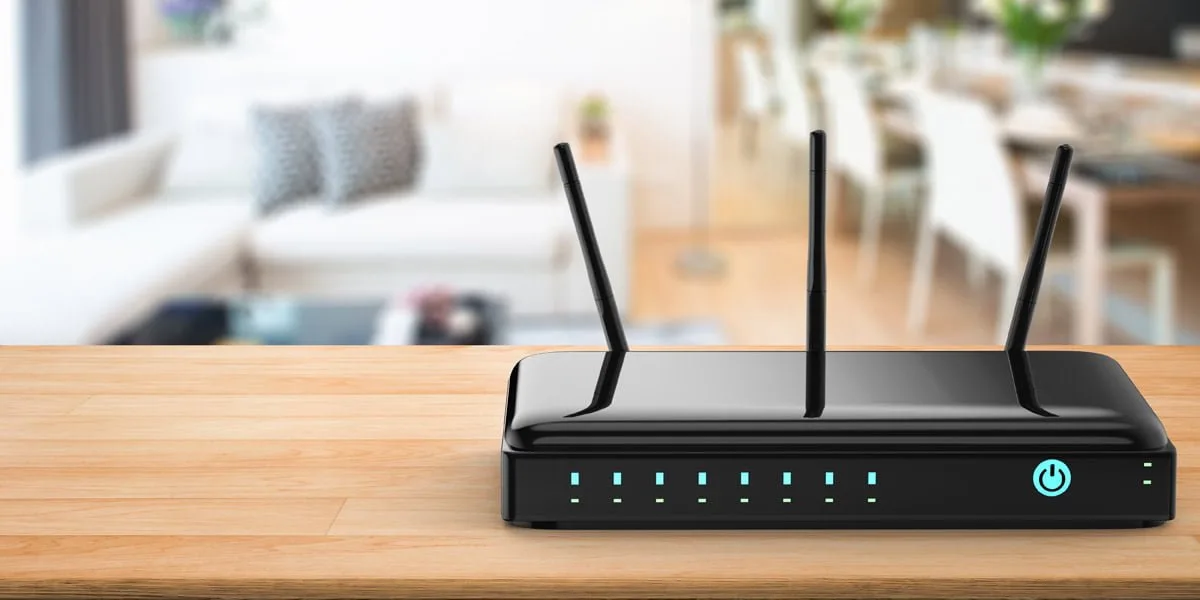A wireless router or wireless access point is an entity that acts like a router but has the added roles of a wireless access point too. It’s mostly used to offer access to a public network or the Internet. It’s usually placed in between the internal part of your network (the PC) and the access point you connect to (the WAN router or access point).
One of the most commonly used WLANs is called as Wireles routers. Unlike other routers, these are very easy to set up and have very simple software. Some even come with pre-configured default settings, so all you need to do is to install the required software and make necessary adjustments. Some even come with built-in automatic settings.
Like other WLAN routers, these can also be configured. Just like any other wireless LAN routers, they can allow you to create an SSID, assign permissions to an access point, and assign a password for security purposes. You can also set the port forwarding port and the scan rate. These features make it easier for you to customize the experience of your Wireles routers.
In general, this wireless router has three main parts – radio transmitter, radio receivers and connector. The transmitter is the part that receives the signals, while the receiver is responsible for broadcasting the signals and storing them on the device. The connector is used for connecting the Radio Transceivers to the PC or the Network Interface Card. The wireless LAN card is what connects the PC to the Wi-Fi access point or the Internet.
The major advantage of using Wireless routers over wired ones is that they offer mobility. This is why many people choose to use these for their home networks. These Wireless routers are also useful in offices, wherein there are not enough wires available to connect all the computers together. Also, as these wireless routers use radio waves, the signal remains undisturbed even when other wireless devices like cordless phones or wireless computer access points are in the area. This feature makes it possible for the wireless routers to be placed in areas where cable wires cannot be run.
Best wifi routers for home 2021
Voted by Tech Business News
- TP-Link Archer C20 AC750.
- Netgear R6260 AC1600
- Tenda N301 Wireless-N300
- TP-Link Archer A7 AC1750.
- TP-Link Archer A5 AC1200.
- D-Link DSL-2750U.
Wireless routers are most commonly used in homes because they provide ease of mobility, convenience and flexibility. They are easy to setup and can be configured without the help of technical support services from the manufactures. These devices have multiple access points and you can configure as many access points as you want for multiple computers on your network. It is designed for multiple users so that you can connect multiple devices to a single router with a single cable.
Some of the major wireless network providers in the market offer the Wireless routers for your home or office at affordable rates. These offer various plans for different needs and you can choose the best plan that suits your requirements. You can easily connect the laptops of different users with the help of an easily configured wireless router in your home. If you work from home, you need high quality Wireless routers for accessing various networks and sharing files with others. The wireless routers available today are very reliable and secure so that you can stay connected to the office even if you are on a business trip.
8 Of The Best Small Business Routers of 2021
Voted by Tech Business News
- Best Overall: Synology RT2600AC.
- Best Value: Netgear Nighthawk X4S.
- Best Speed: Netgear Nighthawk X10.
- Best Coverage: Netgear Orbi Pro AC3000.
- Most Versatile: Linksys EA6350.
- Best for Streaming: Linksys AC1900.
- Best for Security: Asus RT-AX88U.
- Best Features: Google Nest Wifi.
These can be easily installed with the help of the manuals provided. You do not have to worry about any kind of wires or cable because they have been designed with hidden wiring that makes the entire system clutter free. All you need to connect the wired devices to the routers and voila! You have access to the internet anywhere in the premises. Thus, the wireless routers are truly beneficial for the homes and offices that need to have access to the wireless network without disturbing the wired network.
Enterprise Wireless Routers
Enterprise wireless routers are the backbone of any business that relies on electronic information to function. Without this information, a company’s ability to make financial decisions, implement plans for operations and collect data is hindered. Wireless routers are usually a combination of hardware and software designed to provide companies with the most up to date and comprehensive wireless network available in a given location. In addition, most routers also provide businesses with a reliable set of services and utilities so that a company can stay connected in case of power outages, telecommunications failures or other errors that can interrupt a business’s daily operations.
One of the more popular types of Enterprise wireless routers is a virtual private network (VPN) that works by allowing users to access a specific Internet resource while keeping their identity secret. This means that even if a person’s identity and location are revealed, the information provided to others will not be affected because the individual’s VPN does not require them to open or read any files on the local computer. The only time an individual’s identity is exposed is when a connection is established between two different wireless routers. In order to establish this connection, the individual connects to each computer in the cluster using their personal wireless router, regardless of whether or not they are within the same building or not.
View a range of best enterprise routers here
When connecting to other wireless routers, clients make sure that they are using the correct security protocols and certificates so that they can prevent the unauthorized sharing of sensitive data. Some of the security protocols and certificates that can be used include WPA, WPA2, EnterpriseConnect and Certificate enrollment. Most enterprise wireless routers support WPA because it is a secure connection that helps prevent intrusions from other wireless networks. On the other hand, some companies still prefer to use WPA because it is more convenient for them. For instance, some choose to connect their enterprise Wi-Fi network to their private wireless network through EnterpriseWPA. However, they also have computers that connect through Enterprise Wireless routers that do not have WPA installed, so they are not protected.
Wireless Access Points
Wireless Access Points (or Wi-Fi Access Points as they are often referred to) is small wireless devices that connect to a wireless router and then to several computers, devices, and appliances in the building. The routers are usually equipped with wireless controllers that allow for configuration of wireless APs. The wireless routers also act as repeaters that receive and transmit radio signals within the areas covered by the signal strength of their network. A Wireless Access Point usually provides wireless coverage for many different devices inside the building, thanks to the built-in antenna and transceiver devices. In some cases, a wireless access point can also serve as a wireless gateway, allowing a user to use a computer with a wireless card (Bluetooth), connect to the internet wirelessly through the point and have internet service provisioning done just like a traditional laptop would. However, the main benefit of having a wireless access point installed is that users don’t need to configure every device individually, which saves time and ensures that the right devices get cabled to Internet without complications.
Voted No.1 Best Wireless Access Point
Ubiquiti Unifi
Ubiquiti Unifi is one of the newest generation wireless access points available today. Ubiquiti Unifi is a software-based, MirasCom network appliance that enables users to connect to multiple Wi-Fi hotspots from a single location. This eliminates the need for a wireless router, as well as the need for a separate access point. Ubiquiti Unifi offers a standard assortment of hardware components that can be used in standalone units, or in a repeater/router combination.
Easily setup
Ubiquiti Unifi does not require any complex configuration. Users just need to install the software and it will automatically configure and locate the required devices for wireless internet access. Users do not need to physically access the configured devices, and these can also be configured from a remote location. In fact, users can configure Unifi on a laptop, where there is no cable available for setting up the devices or routers.
Wireless Extenders
Setting up an effective wireless network for your home or business is easier than you think; the majority of wireless extenders and wireless repeaters are available in the market, and you will discover that the signals they send are as strong as the ones coming form your main router. However, if you keep getting into dead zones all over the house and encountering the ever dreaded Zoom freeze, then you should definitely be considering wireless extenders for your home or office. Installing wireless repeaters or wireless extenders can actually increase the effectiveness of your wireless network significantly, and they are also relatively easy to set up. This means that even those without technical skills can set up their own wireless repeater or extender network today.
The most popular option for wireless extenders in homes is often wireless access points. These are devices which you can place either in the kitchen, on your stairwell, or even in front of your door, and they will allow your device to connect to the internet without wires being laid down, or without needing to worry about cables running all over your house. You can install these easily, too, so you don’t have to call around to various companies to have someone come and install them for you (and they are usually more expensive than the aforementioned wired options).
View a range of the best wireless extenders on the market here
Some people prefer the classic wired option when it comes to wireless extenders because of the speeds they offer. Most of these devices offer speeds of 10 gigabits per second or more, so you will immediately notice the difference once you connect them to your computer. Other people prefer the more advanced wired options which offer much faster speeds, especially when they are placed in high-traffic areas, or if they are used for tasks such as streaming media. As you can see, it all depends on what you are using your device for, as well as what you are looking for in the networking capabilities of the devices themselves.
Wireless Firewalls
Wireless firewalls are designed to prevent unauthorized access by controlling communication between networked computers. Wireless firewalls work over a radio frequency which enables several wireless devices to connect to the Internet and each other without being connected to a traditional switch, firewall, or modem. Although most modern personal computers have built in Wireless LAN and Wireless Access services, there are still many organizations which choose to use a separate form of Internet security like wireless security suites instead. Wireless firewalls provide a variety of benefits including added protection from malicious network attacks, preventing unauthorized access from computers on the same network, and changing the way that Internet traffic is sent and received. While there are numerous different types of Wireless Security Systems, all of the most popular and best known products include the following features:
- Customisable Blocking
- Automatic Application Banning
- Website Blocking
- Parental Controls
- URL Filtering
- Spam Protection
- Web Tracker Protection
- Custom Port Rules
- Data Caching
Most leading wireless security systems provide a variety of advanced security features for added protection and ease of installation. Some of the most popular features include customisable blocking capabilities, allowing users to set rules for commonly used Internet applications and websites, automatic application banning, website-blocking software, parental control, URL filtering, spam protection, and web tracker protection. These additional features make the most comprehensive and cost effective Wireless Network Security Solutions. In addition, many of the leading vendors offer easy to install software that allows customers to quickly implement new Wireless Firewalls or Wireless Security Suite applications.
Most leading manufacturers of Wireless Firewalls include an easy to download video tutorial which walks users through the entire setup process including installation. Many of the most popular brands of Wireless Firewalls also offer customisable software which allows users to easily change certain components of their firewall such as port blocking or enabling/ disabling specific programs. Many of the leading vendors offer free trials and money back guarantees for their products. Customers can purchase a Wireless Network Security System with the option of purchasing a customized firewall. While some of the most popular and well known brands offer simple Wireless Firewalls, more complex Wireless Network Security Systems is available for those requiring higher levels of security. For example, Intrusion detection systems require the use of several custom made components to properly identify any threats and allow users to manage and block them individually.
Choosing the right wireless router
Generally speaking, there are so many variables that go into choosing the right wireless router for your home. In order to make your decision easier, I have compiled a list of tips and considerations that may help you in the process. First off, be sure to consider the number of people who will be using your current Internet connection. This factor alone can make or break your decision. Also consider how close (or far away) you are from your closest access point Obviously if the closer, the Wi-Fi is going to be more reliable,
It goes without saying that if you are planning on installing a laptop in your office or at home, you want to make sure it is a backwards compatible product. These products were designed to be used with the same type of internet connection as you now use at home. Unfortunately some older laptop computers were not designed to work with certain types of wifi networks. While most modern laptops will work with a wifi network regardless of whether it is a wi-fi or 4g network, if you are purchasing a laptop you may want to check with the seller and see if they have a product specifically made for the older version of the aforementioned networks.
For me the biggest consideration is power consumption. The more wireless routers you have in your household, the more power your system needs to use. The reason I recommend having multiple wireless routers is that you can monitor everyone’s internet usage to ensure you only allow access to the software users and disable unnecessary programs that can harm your computers. This not only protects your computer system, but also your privacy!







